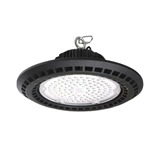Leading metallurgists gathered recently to discuss the latest work aimed at dramatically lowering the greenhouse emissions of aluminium production and improving the industry's competitiveness.
Professor Geoffrey Brooks, head of Swinburne's High Temperature Processing Group and leader of a cluster of Australasian universities working with CSIRO said that the metal industry had a responsibility to make its production processes more sustainable.
"Aluminium production forms an important part of Australia's manufacturing chain and also provides significant jobs and export wealth. However, its production is very energy intensive, about ten times that of steel," Professor Brooks said.
"As a result, it consumes a significant part of the nation's electricity. In Victoria, aluminium production at Portland and Port Henry, accounts for about 20 per cent of the state's electricity consumption."
He said the introduction of the carbon tax affects the competitiveness of the aluminium industry and was a further incentive to optimise aluminium processing.
"A 20 per cent cut in energy used for aluminium production is achievable through developments in materials science and computer control systems," Professor Brooks said.
"Improvements to the process for making aluminium would have a significant impact on the greenhouse gas output of the nation and help increase the sustainability of the industry."
There are several projects currently under way. Swinburne's Professor Yos Morsi is using high speed photography and new mathematical modelling techniques to tie down the physics of the movement of bubbles in the current aluminium production process, and the dramatic effect this has on how the electrolytic cells behave.
At the University of New South Wales, Associate Professor Jie Bao is linking advanced computer control systems to aluminium processing that will limit interruption. This work already has support from industry, as producers look to limit greenhouse emissions.
Professor Mark Taylor's group at the University of Auckland is developing a process based on chloride chemistry to replace the current electrolytic process.












